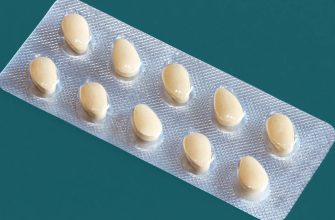If you’re weighing your options for treating hypothyroidism, understand that both Levoxyl and generic levothyroxine aim to replenish deficient thyroid hormone levels. However, recognize that subtle differences exist in their formulation and how individuals respond to them. Specifically, consider that Levoxyl historically had a more consistent potency, making it a preferred choice for some doctors and patients seeking stability in hormone replacement.
Think about inactive ingredients – these are the fillers that make up the pill along with the active drug. Levoxyl, being a brand-name medication, previously boasted stricter manufacturing standards and fewer formulation changes, appealing to people sensitive to dyes or certain binding agents. Now, while high-quality generic levothyroxine options are readily available, monitor how you feel after switching. Any unexplained symptoms, such as fatigue, mood swings, or digestive issues, warrant a discussion with your doctor to determine if the change in formulation impacts you.
Remember that cost is a significant factor. Generic levothyroxine will typically cost less than Levoxyl. Insurance coverage varies greatly, so check your plan’s formulary to understand your out-of-pocket expenses for each option. Your doctor can guide you toward a cost-effective treatment strategy that still meets your individual needs.
Levoxyl vs. Levothyroxine: A Detailed Comparison
If your doctor prescribes thyroid hormone replacement, understand that Levoxyl and generic levothyroxine aim to restore normal hormone levels. While both contain the same active ingredient, levothyroxine sodium, they differ in inactive ingredients and manufacturing processes. These differences can influence how your body absorbs and uses the medication. Therefore, consistency is key.
Bioequivalence: Generic levothyroxine must meet strict FDA standards for bioequivalence, meaning it should perform similarly to the brand-name drug. However, slight variations can occur batch to batch, and between different manufacturers. Levoxyl has a long-standing track record and a consistent formulation.
Inactive Ingredients: Pay close attention to inactive ingredients, especially if you have sensitivities or allergies. Levoxyl’s formulation avoids certain dyes and fillers that some generic versions may include. Inspect the label carefully.
- Allergies: If you suspect an allergic reaction (rash, hives, swelling), immediately contact your doctor.
- Fillers: Discuss any known sensitivities to common fillers with your pharmacist.
Patient Experience: Some individuals report feeling better on one formulation versus another, even though both contain levothyroxine. This could be due to individual responses to the specific mix of ingredients or psychological factors. Monitor your symptoms closely when switching formulations.
Switching Formulations: If your doctor recommends switching between Levoxyl and a generic version, request thyroid function tests (TSH, T4) after a few weeks to ensure your hormone levels remain within the desired range. This proactive approach helps avoid undesirable symptoms associated with fluctuating thyroid hormone levels.
Cost: Generic levothyroxine generally costs less than brand-name Levoxyl. However, your insurance coverage may influence your out-of-pocket expenses. Compare costs at different pharmacies and inquire about manufacturer coupons or patient assistance programs.
Recommendation: If you are stable on Levoxyl, maintain that formulation if possible. If cost is a major concern, discuss generic options with your doctor, but be prepared to monitor your thyroid levels closely after switching. Open communication with your healthcare provider is the best approach to ensure optimal thyroid hormone management. Always obtain your refills from the same pharmacy to maintain consistency if using a generic version.
What’s the Core Difference?
The key distinction between Levoxyl and generic levothyroxine lies in formulation and manufacturing. While both contain the same active ingredient (levothyroxine sodium), Levoxyl prioritized consistency in hormone potency batch-to-batch during its production.
This focus stemmed from historical concerns about variability in generic levothyroxine products. Older versions exhibited fluctuations that could potentially impact thyroid hormone levels in patients. Consequently, some physicians and patients preferred Levoxyl, believing it offered greater assurance of consistent dosing. However, current standards in generic drug manufacturing have improved significantly.
Bioavailability and Absorption
Bioavailability might be a subtle differentiator. Different inactive ingredients (binders, fillers) can affect how quickly and completely the body absorbs the levothyroxine. Individuals with sensitive digestive systems or specific allergies might react differently to Levoxyl compared to a specific generic formulation. It is advisable to discuss any concerns with your healthcare provider.
Brand vs. Generic Perceptions
While the active drug is the same, some individuals report subjective differences in how they feel on Levoxyl versus a generic brand. This can be attributed to the placebo effect or, less commonly, to subtle variations in absorption. Close monitoring of thyroid hormone levels (TSH, Free T4) by your physician is essential, irrespective of the chosen medication, to ensure optimal thyroid hormone balance.
Brand Name vs. Generic
Consider generic levothyroxine first, but closely monitor your TSH levels after switching from Levoxyl. Generic versions offer the same active ingredient at a reduced cost. However, subtle variations in inactive ingredients can affect absorption.
Levoxyl, a brand name levothyroxine, maintains a consistent formulation. This can be helpful for individuals sensitive to fillers or experiencing inconsistent results with generic options. Many patients find a specific brand, be it Levoxyl or a particular generic, that consistently works for them. Sticking to that specific product becomes a priority.
Bioequivalence Matters
Bioequivalence studies ensure generic levothyroxine delivers the same amount of active drug into your bloodstream as the brand-name product. The FDA allows a narrow range of difference, typically within 80-125%. This acceptable range can still cause noticeable changes in thyroid hormone levels for sensitive individuals. Always discuss any symptoms, like fatigue or mood swings, with your doctor after switching between brands and generics.
Navigating the Switch
When your pharmacy switches to a different generic manufacturer, proactively request to stay with your preferred brand. Pharmacies are sometimes willing to accommodate this request. If you experience unusual symptoms after a refill, check the medication’s manufacturer. Report any adverse reactions to your doctor and the FDA MedWatch program. This helps monitor the safety and efficacy of both brand name and generic levothyroxine products.
Absorption and Bioavailability
Take levothyroxine on an empty stomach, ideally 30-60 minutes before breakfast, to maximize absorption. Food, particularly certain substances, can significantly decrease how much of the drug your body uses.
Levoxyl and other levothyroxine formulations have comparable bioavailability when taken correctly. Bioavailability refers to the proportion of the drug that enters the circulation and is able to have an active effect. Generic levothyroxine must fall within an FDA-acceptable bioequivalence range of the brand-name drug.
Factors like hypothyroidism itself, other medications (such as antacids, calcium supplements, iron supplements), and gastrointestinal disorders (like celiac disease or lactose intolerance) can interfere with levothyroxine absorption. Wait at least four hours after taking such medications or supplements before taking levothyroxine.
If you suspect inconsistent absorption, your doctor can perform blood tests to monitor your TSH levels. Regular TSH testing helps determine if your current dosage is adequate or if adjustments are needed to maintain thyroid hormone balance.
Liquid levothyroxine formulations and soft gel capsules potentially offer more consistent absorption compared to traditional tablets, especially for individuals with gastrointestinal issues or those taking multiple medications. Discuss these alternative formulations with your physician.
Cost and Availability Concerns
Choose generic levothyroxine to save money; it’s usually significantly less expensive than brand-name Levoxyl. Prices can differ greatly between pharmacies, so always compare costs using online tools like GoodRx or by calling several pharmacies directly. Many insurance plans cover generic levothyroxine, but confirm the copay with your insurer.
Generic levothyroxine often experiences availability issues due to manufacturing problems or fluctuating demand. If you encounter a shortage, ask your doctor to write a prescription for another brand of levothyroxine or Levoxyl. Having this alternative prescription ready will ensure you don’t interrupt your treatment.
Consider mail-order pharmacies if you require a consistent supply of medication and face difficulties finding it locally. These pharmacies often maintain larger inventories and may offer discounted prices. Before switching, check your insurance coverage and the pharmacy’s delivery policies.
Be proactive by regularly refilling your prescription and keeping a close watch on your medication supply. This vigilance can alert you to possible shortages, allowing you time to find alternatives and prevent interruptions in your treatment. Contact your doctor immediately if you cannot find your prescribed medication. Don’t wait until you run out.





